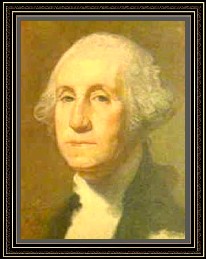A Conservative Viewpoint
- Courts Repress Free Speech
Article by Bob Steinburg
- Edenton, North Carolina: Cradle of the Colony

Freedom of speech in America may not be dead. But if you live in an area that falls under the jurisdiction of the U. S. Fourth Circuit Court of Appeals headquartered in Richmond, Va., which includes the Eastern District of North Carolina, you could reasonably conclude justice is hemorrhaging.
December 1st the U. S. Supreme Court denied my petition to hear oral arguments to review a decision rendered by the U. S. District Court in Richmond and later upheld by the Fourth Circuit Court of Appeals. The petition evolved after the lower courts denied me the right to a jury trial in a case where I alleged that the Chesterfield County, Va. Planning Board violated my First Amendment right to free speech.
I was arrested on Oct.18, 2005 for refusing to sit down before concluding my remarks at a meeting where I was leveling criticism at planning commissioners. I had spoken for less than two minutes before I was cut off. The District Court ultimately decided that the Planning Commission could in fact silence me because I was not addressing the agenda item, although my criticism was centered on the commissioners’ behavior toward two previous speakers who were. The U. S. Fourth Circuit Court of Appeals upheld the District court’s ruling, even taking it one step further by stating in their published opinion that Chesterfield County has every right to prohibit personal attacks of criticism. So much for freedom of speech in the Fourth Circuit’s jurisdiction.
The United States Constitution’s First Amendment clearly states that “Congress shall make no law respecting an establishment of religion, or prohibiting the free exercise thereof; or abridging the freedom of speech, or of the press; or the right of the people peaceably to assemble, and to petition the government for a redress of grievances.”
Under its Fourteenth Amendment, Section One further states in part that no one shall be denied due process of law. Due process is the principle that the government must respect all of the legal rights that are guaranteed to a person according to the laws of the land. This means enforcing a citizens rights against alleged violations by the government.
In addition, the Constitution recognizes the right of every citizen to a trial by jury, declaring it a fundamental civil liberty or civil right.
Preserving our right to free speech is essential to preserving other constitutional rights. If we are silenced, we are unable to challenge any injustice, criticize any behavior, question any law or protect any previously bestowed freedom. We are then held in bondage by our government who then can do whatever it sees fit, right or wrong.
However, not everyone is granted his or her constitutional right to a trial by jury because of a legal procedure known as Summary Judgment. That basically means a judge makes the decision, with arguably limited information and limited input.
Those who endorse summary judgment say that it eliminates a lengthy trial process, which can be difficult and costly. But what it also does is to remove an individual’s right to be judged by a group of his peers. His fate instead is placed in the hands of a judge. Any party moving for summary judgment is usually attempting to eliminate its risk of losing at a jury trial. Chesterfield County was seeking a summary judgment
Many folks have contacted me since this decision was rendered, including several older blacks who told me they fully understand what can happen when an individual stands up-or remains seated in an act of civil disobedience.
On the evening of Dec. 1, 1955, in Montgomery Alabama, Rosa Parks refused to give up her seat on a city bus to a white passenger. She was arrested for disobeying an Alabama law that forced blacks to relinquish their seats to whites when the bus was full.
What Rosa Parks did was monumental and changed the face of the civil rights movement in America. My “civil disobedience” will have no such impact. But it does point to how fragile the rights we think we possess under our constitution really are.
The ruling in my case was not what I had hoped. The anger and humiliation of being arrested and then handcuffed in an open public meeting is something I will never forget. Before this meeting others in Chesterfield County had been treated in a similar manner-disrespected with their comments and viewpoints often ignored. However, no one previously had ever been arrested. Since my arrest Chesterfield County has dropped their prohibition against personal attacks of criticism and have established an open comment period where citizens can speak about anything they wish.
Those who treasure the right to free speech and who live in the jurisdiction of the Fourth Circuit Court of Appeals have every reason to be concerned. With its decision in my case the court has now emboldened government to silence the citizenry on a whim. When we cease to have a voice, we risk losing all of our freedoms. Denying freedom of speech is the first step toward totalitarianism. In this case, we are well on our way. It was a shameful day for these “Men in Black.”
There is not much to add to this article. The act of declaring McCain-Feingold "constitutional" tells you everything that you need to know about the status of freedom of speech in America today. Our courts have become the bastions of government, not protectors of the people. Freedoms normally disappear fairly quickly after that point is reached.
Our Constitutional rights are no longer protections against government power, but are now being balanced against the need of government to control certain actions of an unruly and troublesome citizenry who actually dare to believe that freedom is supposed to mean freedom.


0 Comments:
Post a Comment
Subscribe to Post Comments [Atom]
<< Home